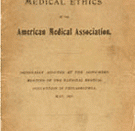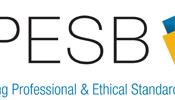The term 'ethics' can commonly refer to the rules and principles that define right and wrong conduct of individuals (Robbins, Bergman, Stagg and Coulter, 2003, p.150). Ethical Behavior is accepted as "right" or "good" in the context of a governing moral code. Ethics can be viewed as a way of behaving that can be prescribed and imposed by the work environment (Garcia-Zamor, 2003).
Virtually all societies have developed rules and regulations about how business should be transacted and how business organizations should be managed. In other words, based on experience and the philosophical and religious values of the society, rules of acceptable and non-acceptable behaviors evolve and are encoded into society (Mendenhall, Punnett and Ricks, 1995, p.138).
Organization's Role in Influencing The Ethical Behavior of Employees
Employees care and always question about the ethical conduct of employers and tend to believe the action rather than the word of the employer (Clark, 2000).
Managers can discipline an employee by verbal warnings or punishments. However, if a manager himself does not conduct himself ethically, an employee will find not find good reason to follow the organization's rules. An example is in the case of Exxon-Mobil's management bribing foreign officials in Kazakhstan to obtain a contract deal (Levine, 2003). As the higher-management in Exxon-Mobil had set a bad example, employees working in Exxon-Mobil will not find good reason to follow the ethical guidelines that were implemented.
How an employee behaves in an organization is made up of attitudes towards pay, promotions, co-workers, supervision and the work itself (Cascio, 1991, p.130). These factors can play an important role in influencing how an employee in the organization behaves. A reasonable amount of wage should be paid in accordance to the kind of work an employee does. Extra bonuses and perks should also be handed...


